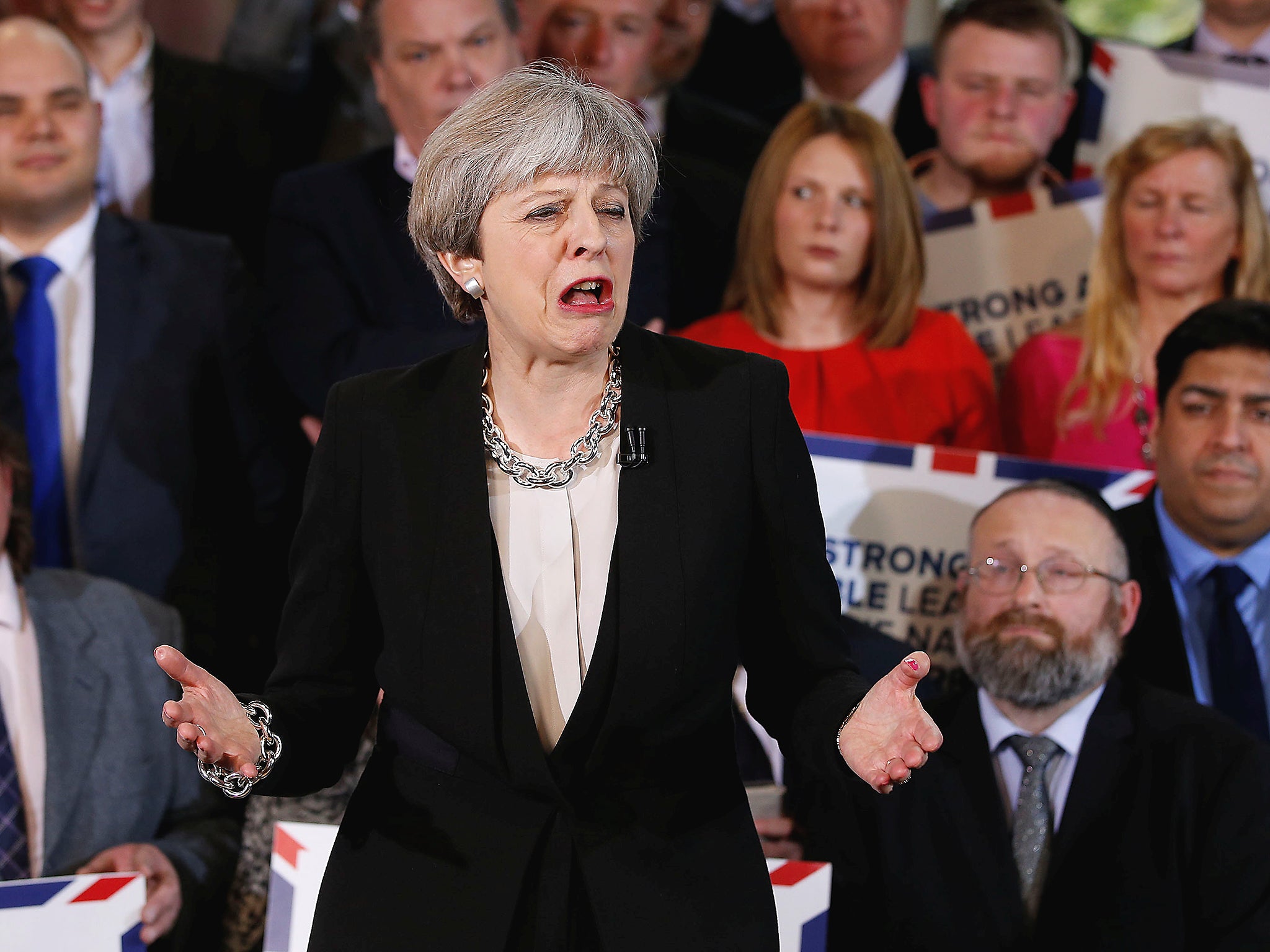Voter turnout is likely to be so low this general election that May's result will barely be democratic
The Lib Dems have just nine MPs, Labour is in crisis and Ukip is struggling to find a post-Brexit identity – a large proportion of British voters feel disenfranchised; they may never vote for May’s Conservatives, but they can’t easily find another home. They will likely abstain


It feels as if Brenda from Bristol was speaking for everyone when a BBC reporter told her that Theresa May had called a general election for 8 June. “You’re joking?” she exclaimed. “Not another one. Oh for God’s sake, I can’t stand this.”
Brexit fatigue was already kicking in before yesterday’s surprise announcement. Once Article 50 was issued in late March, every debate about the machinations of departure, every comment on how the process of leaving the EU might pan out, prompted the same response: we’ve made the decision, so let’s just get on with it. The people may have spoken, but the people were already tiring of the subject.
The Prime Minister’s reasons for calling an election at a time of such political overwhelm were as transparent as they were cynical: she has a good chance of pushing Labour to the brink of irrelevance, according to the latest opinion polls. Yet in her quest for a strong majority for her party and a personal mandate for her negotiations with Brussels, she’s actually risking something else: her own democratic legitimacy.
Paradoxically, the pace of Westminster politics over the last two years is leading to voter apathy. Politics all seem rather meaningless when the key figures within it rise and fall quite so rapidly. Meanwhile – with the Liberal Democrats forced to rebuild from a base of just nine MPs, Labour in ideological crisis mode and Ukip now struggling to find an identity since the EU withdrawal process has begun – a large proportion of British voters feel disenfranchised; they may never vote for May’s Conservatives, but they can’t easily find another home. They will likely abstain.

And if people are feeling overwhelmed by “too much politics” now, how will they feel by June? It’s not just the relentlessness of campaigning that’s to follow but the fact that, when they finally head out to vote in June, it will be the second time in a month they’ve been expected to do so. Although the Manchester Gorton by-election has been sensibly called off, local council elections and the vote for a new generation of “metro mayors” – including Andy Burnham standing for mayor of Manchester – are both going ahead on 4 May.
The result, I anticipate, is that turnout on 8 June will be the lowest in the post-war period, even lower than in 2001, when just 59 per cent of the eligible electorate cast their vote.
In some ways, the circumstances in 2001 were not dissimilar to today. Of course Tony Blair took a small hit to his historic 1997 landslide majority, but he was comfortably re-elected despite the smallest voter turnout in modern political history.
Unlike five years earlier, when the emphasis among the electorate was getting out to the polling booth to make change happen, most voters believed (and were right to do so) that the result was entirely predictable: there was no united opposition to the government of the day, and the sitting Prime Minister would secure their own mandate for another five years. In such a scenario, there is little impetus to vote.
Now, of course, we have an angry and motivated Remainer minority which may turn out in greater numbers than anticipated. But the situation on the opposition benches is the same: there is no coherent alternative government sitting in waiting. That in itself drives low turnout. And when, in addition, there are a large number of citizens who simply feel they have nobody to vote for, that situation is exacerbated.

May will, in all likelihood, secure a bigger majority than the 12 seats that she feels thwarts her today, but she’ll be left weakened. A quick breakdown of the figures suggests she’ll have an even smaller mandate than David Cameron in 2010, when he was forced into a coalition with the Liberal Democrats.
Seven years ago, the Conservatives took 36 per cent of the vote with a turnout of 65 per cent. That means that less than a quarter of the eligible voting public actually cast their vote for Cameron. Assuming a very low turnout of around 50 per cent, even if May secures the 41 per cent of the vote that polls appear to predict, she’s only going to have 22 per cent of the electorate behind her.
With reluctance, May says she has concluded that an election is “necessary to secure the strong and stable leadership the country needs to see us through Brexit and beyond”. The Prime Minister thinks that strength is in numbers, that a bald Commons majority will be sufficient to push her will through. A true democratic mandate, however, is so much more complicated – as the divisions caused by the Brexit have shown. She’s taking a bigger gamble than she realises.
Join our commenting forum
Join thought-provoking conversations, follow other Independent readers and see their replies
Comments
Bookmark popover
Removed from bookmarks